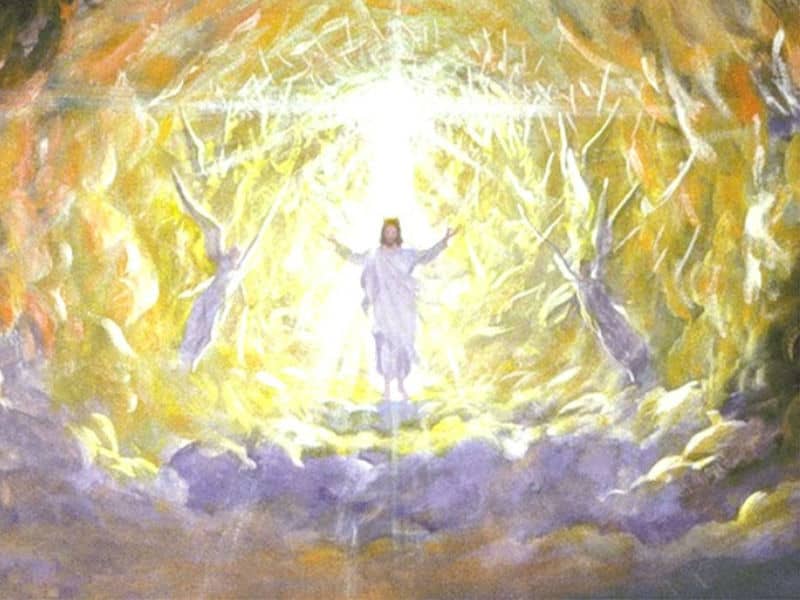So begins my daughter Sophie's bat mitzvah drash, her speech about this week's parsha, Torah portion. I have heard her practicing its delivery and her Hebrew chanting these past months--snippets behind closed doors and the occasional full-blown rehearsal at the dinner table. I listen in awe and amazement that the baby I carried 13 years ago, this tiny girl with her dry humor and passion for social justice, is now a young woman who will be called to the Torah this Shabbat.
I should admit that I tear up at every bar and bat mitzvah I attend. As a rabbi, I often have the privilege of saying a private message in front of the congregational ark to a maturing adolescent. Though what I say is different for each young adult, the primary theme is similar. In many tribal societies (of which Judaism is one), coming-of-age rituals are marked by serious challenges--a quest or labor. I remind the young adult that in our Jewish tradition that "quest" involves the study and mastery of a great deal of sophisticated text, finding a personal message in that text, and explaining it to the community. For most 13-year-olds with whom I work, it is the hardest thing they have ever done.
This portion describes the continuity of the generations, the passing on of the Jewish heritage from the first generation of Abraham and Sarah to Rebecca and Isaac.
I didn't have a bat mitzvah. My grandparents were all socialists from Russia who felt alienated from the Orthodoxy of their youth. They didn't raise my parents with much regard for or knowledge of Judaism.
My parents were a bit too affluent in Eisenhower's suburban America to remain socialists, but neither did they return to Jewish faith. The Holocaust and American scientific rationalism had opened a vast rift between many Jews and God, and my parents were on the other side of the chasm. They were both mental-health professionals; psychoanalysis was their religion, and the collected works of Freud their Torah.
I am never quite sure what combination of factors brought me back: spiritual longing, deep attachment to my grandmother, rebellion. I like to think that God had a hand in it. Perhaps it is just the changing fortunes of the Jewish people. Many of my cousins are committed Jews. My daughter Sophie will be the first in her generation of my family to be called to the Torah, but she won't be the last.
In the next Torah portion, Rebecca takes on the leadership of the Jewish people, deciding which of her sons will continue the heritage. In this second Jewish generation, Rebecca clearly overshadows Isaac. Perhaps the list of Jewish forebears should read Abraham, Rebecca, and Jacob rather than Abraham, Isaac, and Jacob.
My daughter is an easy, unselfconscious feminist. Sophie is drawn to Rebecca's strength. Most of her drash isn't about Rebecca at all but about the Jewish women who have been her role models. She mentions Ruth Bader Ginsburg, the Supreme Court justice; Golda Meir, the former Israeli prime minister; and Emma Goldman, the anarchist activist. Until I heard the first draft of her speech, I didn't realize Sophie knew who Emma Goldman was. Sophie, though, tells me she wrote a report about Goldman for Religious School.
Many Jewish women of my generation never had a chance to give a bat mitzvah drash. Some, like me, came from assimilated families. Others from more traditional families saw their brothers educated and honored but were denied that opportunity because they were "just girls."
Jewish life in America has changed dramatically for women baby boomers in the 30 years since we were adolescents. There are women rabbis, cantors, synagogue presidents. Though liberal prayer books still don't honor the God of Abraham, Rebecca, and Jacob, they do mention the four matriarchs as well as the three patriarchs: the God of Abraham, Isaac, and Jacob, Sarah, Rebecca, Rachel, and Leah.
If my generation were the "Sarahs," the first cohort of Jewish feminists, then clearly the Jewish people have moved on to the next generation, the "Rebeccas."
Rashi, the preeminent Torah commentator, explains that while Sarah was alive, a miraculous eternal light burned in her tent. At her death, the beginning of this portion, the light is extinguished. When Rebecca comes into Sarah's tent at the end of the portion, the light is rekindled.
It is the poignant truth of this portion that Sarah does not live to see Rebecca's strength and vision. I really wish that my grandmother Goldie, the socialist, could have lived to see Sophie stand in synagogue in front of the congregation and preach about Emma Goldman. But I am deeply grateful that on this Thanksgiving weekend I have that blessing. Amen.

